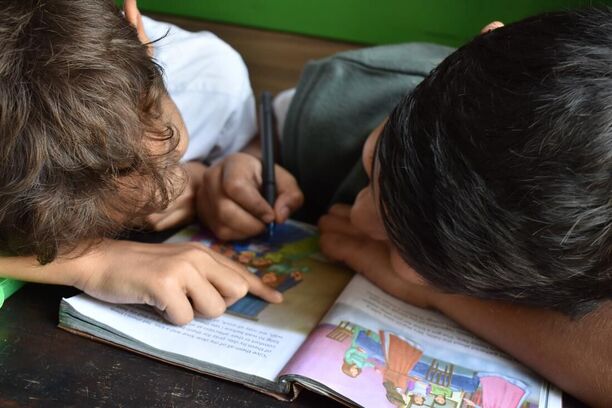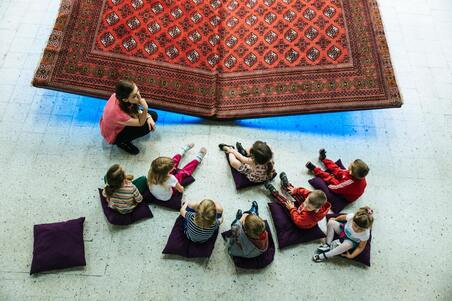Academic Strategies to Support your Child with ADHD
by Helen Myungh, Provisional Psychologist - BPsyc(Hons)/MProfPsych
May 2021
by Helen Myungh, Provisional Psychologist - BPsyc(Hons)/MProfPsych
May 2021
|
Attention-Deficit/Hyperactivity Disorder, commonly known as ADHD is one of the most common childhood neurodevelopmental disorders displayed by symptoms of inattention, hyperactivity, and impulsivity. What you may find is that children can have difficulty with sustaining attention, may fidget or move about, can be easily distracted/day dreamy, and can struggle with impulse control. A combination of these things may impact how your child might learn and take on board information. Given this, it is understandable that around 23% of children with ADHD are also diagnosed with a Specific Learning Disorder (SLD) in either maths, reading, or writing. We might assume that a child’s disruptive behaviour such as hyperactive/impulsive behaviour or conduct problems are interfering with their academic performance but in fact, high levels of inattention and deficits in “executive functioning” predicted higher levels of special educational needs. “Executive functioning” is a set of mental skills that allows us to stay focused, control our behaviour, remember instructions and information, and get things done. It is important to understand that children are not born with these set of skills but have the potential to develop these skills with supports from parents and teachers.
So, with this said, what can we do to support these difficulties? Well, there are a wide range of strategies and interventions that are used to help and support children with ADHD to reach their full academic potential. Below are some strategies to support your child’s academic performance. |
1) Self-Monitoring
Self-monitoring strategy involves getting your child to set and monitor their goals and rewards upon successful completion or accuracy of their school work. Evidence suggests that this strategy is particularly effective in helping older children to improve their academic performance in combination with stimulant medication.
2) Task/Instructional Modifications
This strategy involves manipulating tasks and instructions to help your child reduce the length of the task, breaking tasks down into small units, giving concise and direct instructions, and modifying the delivery or modality of instruction according to the students’ learning style.
3) Homework-Focused Interventions
Your child may benefit from given distractor objects (e.g., stress ball, Blu-Tak) to fidget with during class or homework time to distract them from the passing of time and subsequently reducing their hyperactivity-impulsivity symptoms. Parent tutoring is also a useful tool for homework intervention which involves one-on-one, feedback and active responding. It is recommended for parents and teachers to use communications in such way that enables more efficient information processing and understanding of the school work.
4) School-Based Intervention
|
At school, teachers can assist your child by breaking down tasks into small achievable steps as to reduce overwhelming them, tailor assignments and instructions, allow regular breaks or time to move, using assistive technology, or sitting near the teacher. Flexible examinations should also be considered, for example, shorter exam time, or allowing extra time on examinations. The student might be permitted to leave and re-enter the examination room under strict supervision if their inattention is waning or is too distracted by their restlessness.
|
5) Peer Tutoring
Peer tutoring is a strategy where your child may be paired with another student or placed in small groups to provide each other with learning support. Peer tutoring is not used to address new concepts of learning, rather a form of cooperative and supportive learning strategies whether students tutor each other. This can be done by cross-age; where a younger student is paired with an older student, or ii) peer assisted learning strategies; where your child is paired with students who have similar learning ability. Research has shown that peer tutoring significantly improves classroom behaviour and academic performance. Peer tutoring can be particularly effective when students have high quality of interaction and provided with proper support from teachers.
There are a number of different ways your child’s learning can be supported, it is suggested to try out a few techniques and see what suits their style and personality.
There are a number of different ways your child’s learning can be supported, it is suggested to try out a few techniques and see what suits their style and personality.
Sources
https://www.additudemag.com
Barry, T. D., Lyman, R. D. & Klinger, L. G. (2002) Academic underachievement and attention-deficit/hyperactivity disorder: the negative impact of symptom severity on school performance. Journal of School Psychology, 40, 259–283.
Daley, D., & Birchwood, J. (2009). ADHD and academic performance: Why does ADHD impact on academic performance and what can be done to support ADHD children in the classroom? Child Care Health and Development, 36(4):455-64.
Diamantopoulou, S., Rydell, A., Thorell, L. B. & Bohlin, G. (2007) Impact of executive functioning and symptoms of attention deficit hyperactivity disorder on children’s peer relations and school performance. Developmental Neuropsychology, 32, 521–542.
https://www.additudemag.com
Barry, T. D., Lyman, R. D. & Klinger, L. G. (2002) Academic underachievement and attention-deficit/hyperactivity disorder: the negative impact of symptom severity on school performance. Journal of School Psychology, 40, 259–283.
Daley, D., & Birchwood, J. (2009). ADHD and academic performance: Why does ADHD impact on academic performance and what can be done to support ADHD children in the classroom? Child Care Health and Development, 36(4):455-64.
Diamantopoulou, S., Rydell, A., Thorell, L. B. & Bohlin, G. (2007) Impact of executive functioning and symptoms of attention deficit hyperactivity disorder on children’s peer relations and school performance. Developmental Neuropsychology, 32, 521–542.



